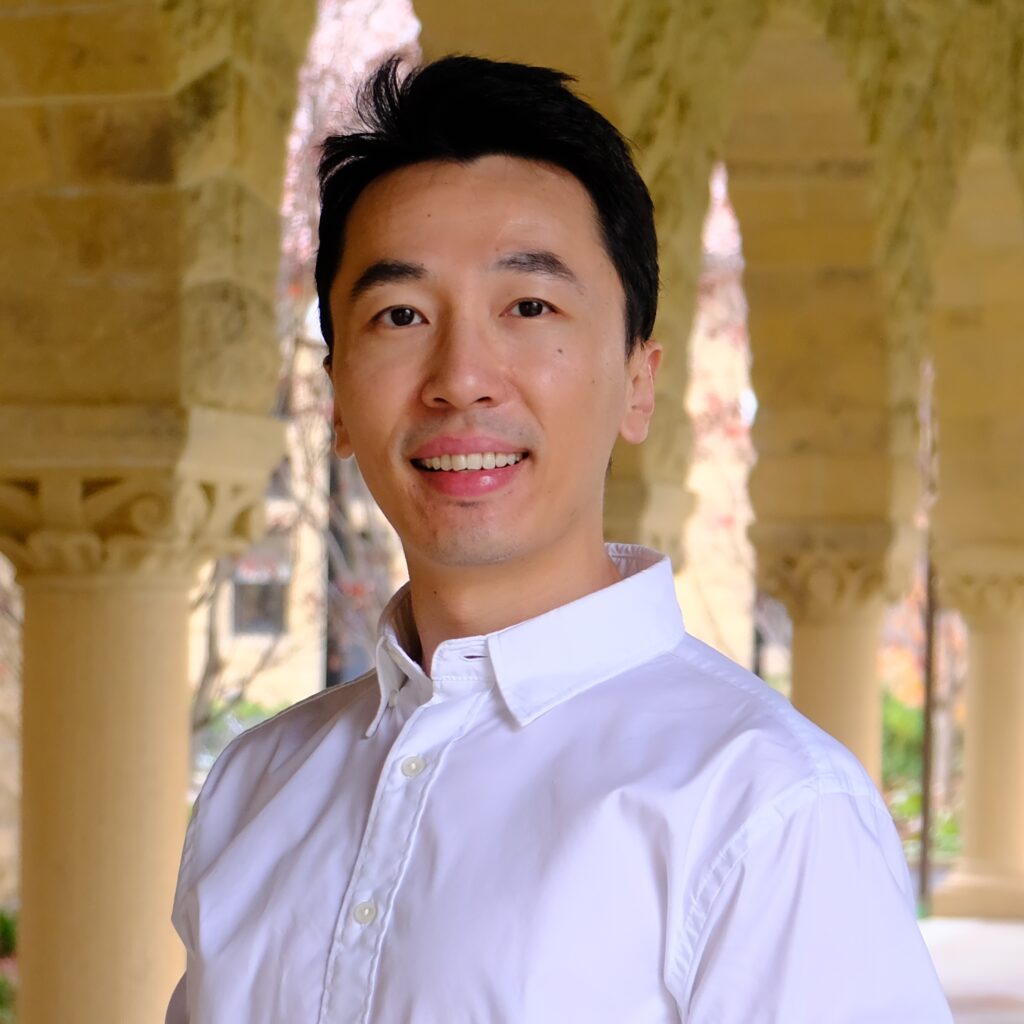Postdoc (Energy Science & Engineering) Stanford University, Postdoc (Engineering Science) University of Oxford, Ph.D. (Building Environment & Energy Engineering) The HK Polytechnic University
ACADEMIC QUALIFICATIONS:
- Ph.D. (2019), Dept. of Building Environment and Energy Engineering, The Hong Kong Polytechnic University, Hong Kong
- Visiting Ph.D. Student (2018), Dept. of Applied Mathematics and Computer Science, Technical University of Denmark, Denmark
- M.Sc. (2015), Dept. of Building Environment and Energy Application Engineering, University of Shanghai for Science and Technology, China
- B.Sc. (2012), Dept. of Building Environment and Energy Application Engineering, Nanjing Tech University, China
EMPLOYMENT RECORDS:
- Assistant Professor, Dept. of the Built Environment, National University of Singapore (2024 – Present)
- Postdoctoral Researcher, Dept. of Energy Science & Engineering, Stanford University, USA (2022 – 2023)
- Postdoctoral Researcher, Dept. of Engineering Science, University of Oxford, UK (2020 – 2021)
RESEARCH INTEREST:
- Building decarbonization technologies for energy efficiency, flexibility, and climate resilience
- Grid-interactive smart buildings and communities
- Modelling, optimization, and model-based optimal control of building and urban energy systems
- Physics-based modeling and control of HVAC&R systems
- Data analytics and machine learning for buildings
- Uncertainty quantification for building energy systems
- Occupant behavior in buildings
TEACHING:
[To be advised]
SELECTED PUBLICATIONS:
Note: An up-to-date publication list can be found on my Google Scholar profile.
- Hu, M., Rajagopal R., de Chalendar J. (2023). Empirical exploration of zone-by-zone energy flexibility: a non-intrusive load disaggregation approach for commercial buildings. Energy and Buildings, 296, 113339.
- Hu, M., Stephen, B., Browell, J., Haben, S. & Wallom, D. (2023). Impacts of building load dispersion level on its load forecasting accuracy: Data or algorithms? Importance of reliability and interpretability in machine learning. Energy and Buildings, 285, 112896.
- Hu, M., Ge, D., Telford, R., Stephen, B., & Wallom, D. (2021). Classification and characterization of intra-day load curves of PV and non-PV households using interpretable feature extraction and feature-based clustering. Sustainable Cities and Society, 75, 103380.
- Hu, M., Xiao, F., & Wang S. (2021). Neighborhood-level coordination and negotiation techniques for managing demand-side flexibility in residential microgrids. Renewable and Sustainable Energy Reviews, 135, 110248.
- Hu, M., & Xiao, F (2020). Quantifying uncertainty in the aggregate energy flexibility of high-rise residential building clusters considering stochastic occupancy and occupant behavior. Energy, 194, 116838.
- Hu, M., Xiao, F. & Cheung, H. (2020). Identification of simplified energy performance models of variable-speed air conditioners using likelihood ratio test method. Science and Technology for the Built Environment, 26, 75-88.
- Hu, M., Xiao, F., Jørgensen, J.B., & Wang S. (2019). Frequency control of air conditioners in response to real-time dynamic electricity prices in smart grids. Applied Energy, 242, 92-106.
- Hu, M., Xiao, F., Jørgensen, J. B., & Li, R. (2019). Price-responsive model predictive control of floor heating systems for demand response using building thermal mass. Applied Thermal Engineering, 153, 316-329.
- Hu, M., & Xiao, F. (2018). Price-responsive model-based optimal demand response control of inverter air conditioners using genetic algorithm. Applied Energy, 219, 151-164.
- Hu, M., Xiao, F., & Wang, L. (2017). Investigation of demand response potentials of residential air conditioners in smart grids using grey-box room thermal model. Applied Energy, 207, 324-335.
AWARDS:
- Best Student Paper Award (1st place) at 5th International High-Performance Buildings Conference, Purdue University, IN, USA, 9-12 July 2018.


